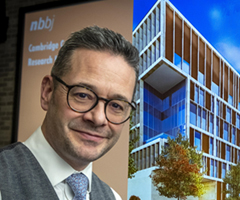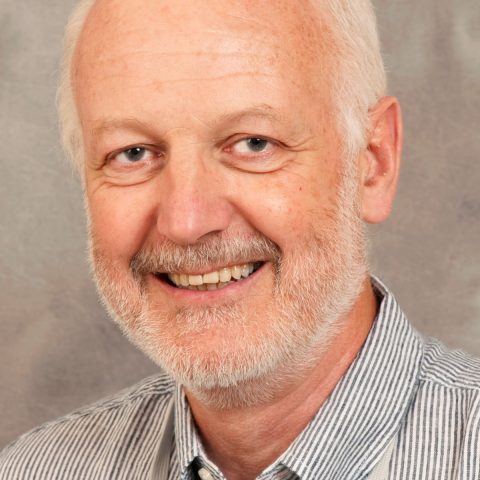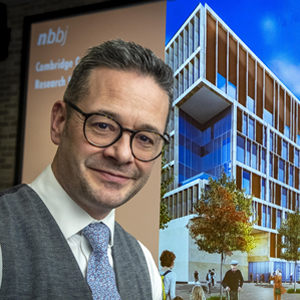Information for journalists
Below is a brief description of what The Charity does, and facts and figures on brain tumours.
This information is downloadable here including the sources for this data.
For other media enquiries, please contact our duty press officer on 07990 828385, or email pressoffice@thebraintumourcharity.org
About The Brain Tumour Charity
Registered Charity No. 1150054 (England & Wales) SC045081 (Scotland)
The Brain Tumour Charity is the UK’s largest dedicated brain tumour charity, committed to fighting brain tumours on all fronts: funding research, offering support and running campaigns to change to healthcare policy.
We fund an extensive and diverse portfolio of research across the UK and internationally, which aims to transform the research landscape for people with brain tumours and give rise to the best chance of finding the cures that are so desperately needed.
We also offer a comprehensive support and information service for anyone who is affected by a diagnosis for however long they need. This includes a support and information line, Information Standard accredited fact sheets, online peer-to-peer support and a dedicated Children and Families Service.
The Brain Tumour Charity also raises awareness of the symptoms and effects of brain tumours through its ‘Better Safe Than Tumour’ campaign. This follows the success of the UK-wide HeadSmart campaign which the charity funded and promoted from 2018 onwards. This reduced average diagnosis times from more than 13 weeks to 6.5 weeks.
We are also called for a National Brain Tumour Strategy.
The Charity is a member of the Association of Medical Research Charities, The Information Standard, The Helplines Partnership and the Fundraising Standards Board.
The Facts
- Brain tumours are the biggest cancer killer of those under 40.
- Just 12% of adults survive for five years after diagnosis.
- Around 5,300 people lose their lives to a brain tumour each year.
- High grade brain tumours reduce life expectancy by an average of 27 years – the highest of any cancer.
- More than 12,000 people are diagnosed with a primary brain tumour each year – an average of 34 people every day in the UK.
- Thousands more are diagnosed with secondary brain tumours, which are not recorded.
- Brain tumours are the largest cause of preventable or treatable blindness in children.
- Childhood brain tumour survivors are 10 times more likely to suffer long term disability than well children.
- This accounts for 20,000 additional disabled life years for all the children who are diagnosed each year.
If you would like to share our information describing a glioblastoma brain tumour and its symptoms, please use this link
More information
Our spokespeople include our CEO, Chief Scientific Officer and Director of Strategy as well as key researchers.
Please get in contact with the PR team if you would like to interview one of our spokespeople about our research, fundraising or strategy.

Professor Richard Gilbertson
Professor Gilbertson sits as the Li Ka-shing Chair of Oncology, Head of Dept. of Oncology and Director of the Cambridge Cancer Centre at Cambridge University. He is also the chair of our Biomedical Scientific Advisory Board.

Professor David Walker
David Walker is Professor of Paediatric Oncology and co-director of the Children’s Brain Tumour Research Centre at the University of Nottingham.
He is clinical lead for HeadSmart, the campaign to reduce childhood brain tumour diagnosis times, which was developed jointly by The Brain Tumour Charity, the Children’s Brain Tumour Research Centre and the Royal College of Paediatrics and Child Health.
Since HeadSmart began, the time it takes on average to diagnose children’s brain tumours in the UK has fallen from more than 14 weeks to less than seven. HeadSmart aims is to bring that figure below four weeks.
Professor Walker is an expert in the clinical factors that affect brain tumour diagnostic processes as part of his main research strategy to “halve the harm” of brain tumours for children.e

Professor Susan Short
Professor Susan Short is a clinical oncologist and clinician scientist with a specialist interest in treating adults with poor prognosis brain tumours. She trained at King’s College London and then worked at Guy’s and St Thomas’s Hospitals and The Royal Marsden Hospital.
She undertook a PhD in radiation biology at The Gray Laboratory, University of London in 1999 and has worked in clinical and translational neuro-oncology since then, as Senior Lecturer at University College London between 2007 and 2012 and since April 2012 as Professor of Clinical Oncology and Neuro-Oncology at the University of Leeds.
She also runs the Translational Neuro-Oncology group at LICPS. This includes CRUK funded work focusing on the response of glioma cells to radiation and identifying new methods of radiosensitisation. She also supervises post-doctoral and PhD students studying other aspects of glioma biology funded through MRC, YCR and PPR projects, investigating glioma cell migration and the role of micro-RNAs in defining glioma phenotype. They have demonstrated the potential for sensitising resistant glioma cell populations to radiation and chemotherapy by targeting recombination repair and shown how commonly used drug-radiation regimes interact in causing DNA damage.
Professor Short has also developed and run clinical studies addressing novel treatments for glioma and meningioma and was Chair of the NCRI Brain Tumour Clinical Study Group in the UK between 2006 and 2011. They have recently shown that state of the art radiotherapy is a very effective treatment for meningioma in the base of skull and are currently investigating the benefit of using hydroxychloroquine as a radiation sensitiser for older patients with high-grade gliomas.

Lewis Thorne
Lewis Thorne
Lewis Thorne is a consultant neurosurgeon at the National Hospital for Neurology and Neurosurgery in London, part of University College London Hospitals NHS Trust. His special interests include brain tumours, awake surgery and stereotactic radiosurgery (Gamma Knife®).
He appeared on the Today programme in July 2015 to speak about the findings of our report, Losing Myself: The Reality of Life with a Brain Tumour. a
What we think
End of life care –
This document provides provides some information about end of life care for people with a terminal brain tumour diagnosis, The Brain Tumour Charity's views on what should be made available, and what we are doing to address the issues raised.
Proton Beam Therapy –
This document provides our position on proton beam therapy, a form of radiotherapy typically used to treat more complex tumours.
Ketogenic Diet –
This document provides an overview of the ketogenic diet, how it relates to brain tumours, and our position on the issue.
The PR team at The Brain Tumour Charity
Press office contact details (Mon-Fri, 9am-5pm): 01252 237864
Out of hours: 07990 828385
E: pressoffice@thebraintumourcharity.org
Jo Porter, PR Manager (Charity News, personal stories and campaigns)
E: joanne.porter@thebraintumourcharity.org
T: 07988 678456
Piers Townley, PR Manager (Fundraising and High Profile Supporters)
E: piers.townley@thebraintumourcharity.org
T: 01252 749991
Jade Passey, Senior Press Officer (Science and Health)
E: jade.passey@thebraintumourcharity.org
T: 01252 237791



